About Blue Tiger Recovery (Closed)
Previously located in Palm Springs, California, Blue Tiger Recovery offered a very specific type of outpatient care for people with addiction, trauma and other disorders. The center offered a part hospitalization program, intensive outpatient program and general outpatient treatment. The center’s approach was unique because it seeked to address the psychological and emotional causes of addiction rather than just the symptoms.
Blue Tiger Recovery was also known for its work with the LGBTQ+ community. Some treatment centers provide general addiction treatment but this facility had specific programming for the additional emotional and social support that LGBTQ+ clients may need. It ensured that everyone who came to it could work on their addiction and trauma issues without having to worry about being accepted. Another important component of the treatment was the involvement of families, which makes the center a good choice for parents who need help. Many families are enablers; they do not know when or how to intervene. Blue Tiger Recovery offered education and therapy to help families establish good boundaries, learn about addiction and stop enabling their loved ones. The facility was accredited by the Joint Commission and worked with leading companies in trauma and addiction treatment. Because of its primarily outpatient rehabilitation, it was a good choice for people who are leery of residential care. Trauma informed therapy, specialized addiction treatment and inclusive programming were all offered at Blue Tiger Recovery to help people move beyond their issues.
Addiction Treatment Programs
Alcohol Rehab
If you’re ready to overcome alcohol use disorder, an alcohol rehab in California can give you the tools you need. Whether you need detox, inpatient treatment, or outpatient care, an alcohol program will help you build a new lifestyle based on healthy coping mechanisms, better relationships, and a new way of thinking about life.
Dual Diagnosis
Many people with addiction issues also have a mental health diagnosis, which is known as a dual diagnosis. Be sure to find a rehab in California that can treat both. Whether you need detox, inpatient treatment, or outpatient care, a dual diagnosis program will offer specific support for your mental health needs alongside traditional substance use treatment.
Opioid Addiction
The goal of an alcohol rehab in California is to give you the tools and skills you need to achieve long-term recovery. During this program, you’ll work with professional counselors to deal with the psychological, emotional, and physical issues that opioid misuse can cause. Over time, you’ll learn how to live without substance use long-term.
Adult Program
An adult program in California addresses the unique needs of adults, such as finding secure housing, building a career, and raising a family. Whether you need detox, inpatient treatment, or outpatient care, an adult program will offer specific support for your emotional, mental, and social needs.
LGBTQ Friendly Rehab
Offering specialized substance use treatment for the LGBTQ+ community, LGBTQ+ friendly rehabs in California provide a safe space to work on recovery. These programs offer personalized treatment that incorporates your physical, mental, and emotional needs. You’ll find the compassionate care you need to overcome addiction.
Men's Rehab
Choosing a men’s rehab in California can be a great way to manage gender-specific issues while also addressing substance use. Whether you need detox, inpatient treatment, or outpatient care, a men’s program will offer specific support for your emotional, mental, and social needs.
Women's Rehab
If you’re a woman struggling with substance use, consider a women’s rehab program in California. Whether you need detox, inpatient treatment, or outpatient care, a women’s program will offer specific support for your emotional, mental, and social needs.
Young Adult Rehab
Young adult rehabs in California address a wide range of substance use issues while also helping clients transition into adulthood. Whether you need detox, inpatient treatment, or outpatient care, a young adult program will offer specific support for your emotional, mental, and social needs.
Insurance Coverage
Private insurance
Paying for rehab in California is easier if you use private insurance. Keep in mind that coverage levels may vary, and it’s important to try to find a center that’s in-network with your plan. Be sure to ask about your out-of-pocket costs, such as copayments and deductibles.
Sliding scale payment assistance
How do you pay for rehab in California? A good option is to look for programs with a sliding scale payment plan. You may need to provide financial documentation for your income and family size, but the lower fees will make it much easier to get the care you need.
Medicare
Medicare is a good way to pay for substance use treatment in California. Your Medicare plan can pay for some or all of the costs of rehab, although you will want to check on the full details. You may have some out-of-pocket costs such as copays or deductibles.
Self-pay options
Paying the full cost of rehab in California yourself is called self-pay. Some people write a check, some electronically send payment to the treatment center, and others get a medical loan. There may be different fee structures depending on the level of care.
Levels of Care
- 1
Outpatient Rehab
Attending outpatient treatment in California allows you to get evidence-based care without living in the facility, helping you establish long-term recovery. Building a new life for yourself takes time, and it’s important to have enough support throughout the process. Outpatient treatment allows you to have more intensive or less intensive help, depending on your needs.
- 2
Aftercare Support
Overcoming substance use is a lifelong process. Aftercare in California gives you the support you need to stay sober. Some aftercare programs will help you connect to community resources and social services in your area, from housing to healthcare to financial assistance.
- 3
Partial Hospitalization Program
Partial hospitalization programs (PHPs) in California allow clients to live at home or in a sober living facility while attending an intensive treatment program. PHPs provide focused therapy up to 20 hours per week that allows you to understand the roots of substance use, learn healthy coping skills, and create a new life.
- 4
Intervention Services
Sometimes your friend or loved one needs intervention services in California before they’ll agree to begin treatment. An intervention professional can offer valuable resources and support and help your loved one find the right program, get there, and begin treatment.
Therapies
Cognitive Behavior Therapy
In California, cognitive behavioral therapy (CBT) helps you identify wrong thinking that can create impulsive actions. This makes it much easier to reach long-term recovery. Substance use treatment includes detox, inpatient treatment, and outpatient care, and CBT may be a part of each of these stages. The goal is to help clients identify distorted thinking, replace it with rational thinking, and change their responses accordingly.
Dialectical Behavior Therapy
In California, dialectical behavioral therapy (DBT) helps you learn healthy coping strategies and build your ability to manage stressful situations. This makes it much easier to reach long-term recovery. Substance use treatment includes detox, inpatient treatment, and outpatient care, and DBT may be a part of each of these stages. The goal is to help clients develop the skills they need to solve the problems they face without substance use.
Family Therapy
Attending family therapy in California is a way to address broken relationships and dysfunction, helping you establish long-term recovery. There are several goals in family therapy. Some sessions may be focused on specific past events, while others address current broken relationships or how good intentions have gone astray. Over time, family relationships can be restored, making recovery easier.
Group Therapy
Attending group therapy in California is a way to overcome shame and isolation, helping you establish long-term recovery. Substance use treatment includes detox, inpatient treatment, and outpatient care, and group therapy may be a part of each of these stages. The goal is to help clients support each other, provide accountability, and relate to each other’s experiences.
Individual Therapy
During individual therapy in California, clients work with a professional to address specific individual concerns. Some of the topics covered in individual therapy include developing healthy coping skills, addressing past events that may have played a part in substance use, and building a support network.
Trauma Therapy
Trauma-informed therapy in California can provide a way to process past events and create better coping strategies as you work through substance use treatment. Both inpatient treatment and outpatient care can include trauma-informed therapy, which helps you create a feeling of safety, access peer support, embrace the validity of your feelings, and create healthy coping skills.
Eye Movement Desensitization and Reprocessing
Accreditations
Location
Contact Blue Tiger Recovery (Closed)
Top Drug Rehab Centers in California
-
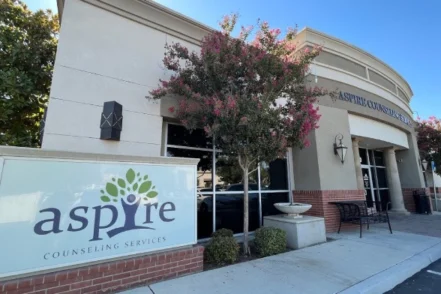 California
CaliforniaAspire Counseling Services
9830 Brimhall Road Bakersfield, California 93313
-
 California
CaliforniaNew Found Life Long Beach
2211 E Ocean Blvd Long Beach, California 90803
-
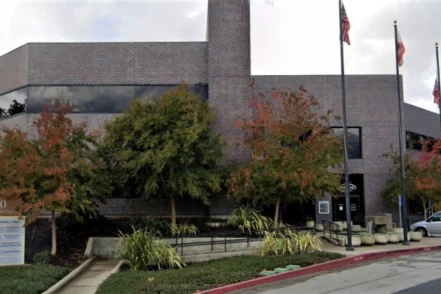 California
CaliforniaDiablo Valley Drug and Alcohol Services
100 Park Place, Suite 120 San Ramon, California 94583
-
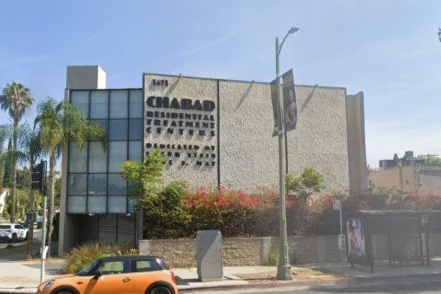 California
CaliforniaChabad Residential Treatment Center
5675 West Olympic Boulevard Los Angeles, California 90036
-
 California
CaliforniaOptions Recovery Services Berkeley
1835 Allston Way Berkeley, California 94703
-
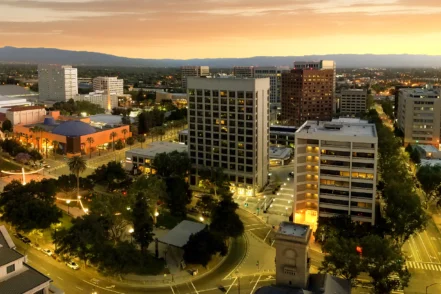 California
CaliforniaCityteam Mens Program
580 Charles Street San Jose, California 95112
-
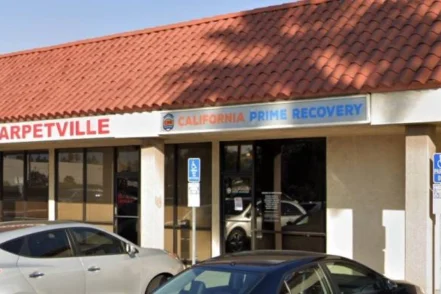 California
CaliforniaCalifornia Prime Recovery
17330 Newhope Street, Unit A Fountain Valley, California 92708
-
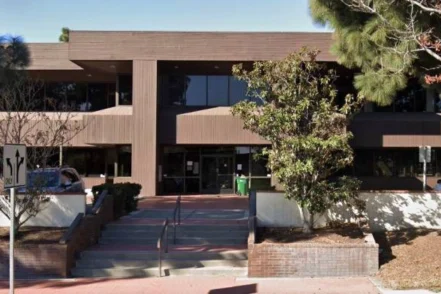 California
CaliforniaRenaissance Recovery
10175 Slater Ave, Suite 200 Fountain Valley, California 92708
-
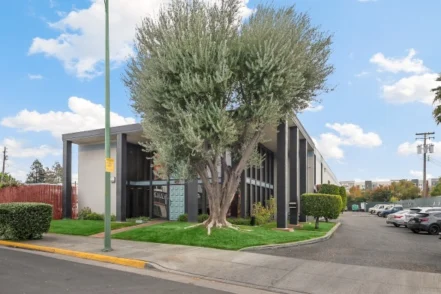 California
CaliforniaNew Life Recovery Centers 782 Park Avenue
782 Park Avenue, Suite 1 San Jose, California 95126
-
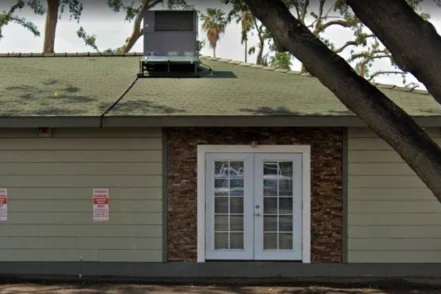 California
CaliforniaBakersfield Recovery Services IOP Services
2920 H Street Bakersfield, California 93301
-
 California
CaliforniaCornerstone of Southern California Santa Ana
13022 Yorba St Santa Ana, California 92705
-
 California
CaliforniaWindward Way Recovery
3822 Campus Dr Suite 500 Newport Beach, CA 92660
-
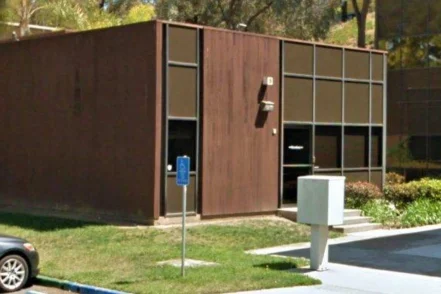 California
CaliforniaSHORELINE Recovery Center
183 Calle Magdalena, Suite 101 Encinitas, California 92024
-
 California
CaliforniaReflections Executive Rehab Facility
1191 Simmons Lane Novato, California 94945
Other Popular California Cities
Browse by California cities
- Calabasas
- Calexico
- Calistoga
- Camarillo
- Cameron Park
- Camp Pendleton
- Campbell
- Campo
- Canoga Park
- Canyon Country
- Capistrano Beach
- Capitola
- Carlsbad
- Carmel
- Carmichael
- Carson
- Castro Valley
- Cathedral City
- Century City
- Ceres
- Cerritos
- Chatsworth
- Chico
- Chino
- Chino Hills
- Chowchilla
- Chula Vista
- Citrus Heights
- City of Industry
- Claremont
- Clearlake
- Clearlake Oaks
- Clovis
- Coachella
- Coalinga
- Coloma
- Colton
- Colusa
- Commerce
- Compton
- Concord
- Copperopolis
- Corcoran
- Corning
- Corona
- Corona Del Mar
- Corte Madera
- Costa Mesa
- Cotati
- Covelo
- Covina
- Crescent City
- Crestline
- Culver City
- Cupertino
- La Crescenta
- La Habra
- La Jolla
- La Mesa
- La Mirada
- La Puente
- La Quinta
- La Verne
- Ladera Ranch
- Lafayette
- Laguna Beach
- Laguna Hills
- Laguna Niguel
- Laguna Woods
- Lake Arrowhead
- Lake Elsinore
- Lake Forest
- Lake Hughes
- Lakeport
- Lakeside
- Lakewood
- Lamont
- Lancaster
- Lawndale
- Lemon Grove
- Lemoore
- Lincoln
- Live Oak
- Livermore
- Livingston
- Lodi
- Loma Linda
- Lomita
- Lompoc
- Long Beach
- Loomis
- Los Alamitos
- Los Altos
- Los Angeles
- Los Banos
- Los Gatos
- Loyalton
- Lucerne
- Lucerne Valley
- Lynwood
- Madera
- Malibu
- Mammoth Lakes
- Manteca
- Marina
- Marina Del Rey
- Mariposa
- Markleeville
- Martinez
- Marysville
- Mather
- Mcclellan
- Menlo Park
- Mentone
- Merced
- Middletown
- Mill Valley
- Mission Hills
- Mission Viejo
- Modesto
- Mojave
- Monrovia
- Montclair
- Montebello
- Monterey
- Moorpark
- Moreno Valley
- Morgan Hill
- Mountain View
- Murrieta
- Pacific Grove
- Pacific Palisades
- Pacifica
- Pacoima
- Palm Desert
- Palm Springs
- Palmdale
- Palo Alto
- Palos Verdes Peninsula
- Panorama City
- Paradise
- Paramount
- Pasadena
- Patterson
- Perris
- Petaluma
- Pico Rivera
- Piru
- Pittsburg
- Placentia
- Placerville
- Playa Del Rey
- Pleasanton
- Pollock Pines
- Pomona
- Port Hueneme
- Porterville
- Poway
- Sacramento
- Salinas
- San Anselmo
- San Bernardino
- San Bruno
- San Carlos
- San Clemente
- San Diego
- San Dimas
- San Fernando
- San Francisco
- San Jacinto
- San Jose
- San Juan Capistrano
- San Leandro
- San Lorenzo
- San Luis Obispo
- San Marcos
- San Martin
- San Mateo
- San Pablo
- San Pedro
- San Rafael
- San Ramon
- San Ysidro
- Sanger
- Santa Ana
- Santa Barbara
- Santa Clara
- Santa Clarita
- Santa Cruz
- Santa Fe Springs
- Santa Maria
- Santa Monica
- Santa Paula
- Santa Rosa
- Santa Ynez
- Santee
- Saratoga
- Sausalito
- Scotts Valley
- Seaside
- Sebastopol
- Sherman Oaks
- Sherwood Forest
- Sierra Madre
- Signal Hill
- Simi Valley
- Skyforest
- Solana Beach
- Sonora
- Soquel
- South El Monte
- South Gate
- South Lake Tahoe
- South San Francisco
- Spring Valley
- St. Helena
- Stanton
- Stockton
- Studio City
- Sun Valley
- Susanville
- Sylmar

